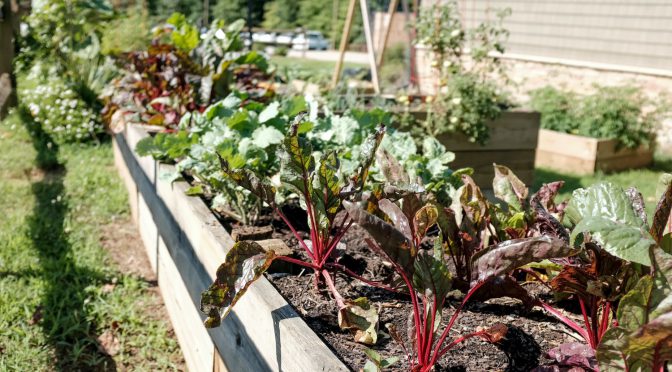Gardening isn’t all about having a green thumb. In fact, a lot of gardening is more about the effort you put in. However, it certainly does get a bit easier with experience. If you’re new to gardening avoid these mistakes for a better 2021 growing season.
Not giving plants enough space.
It can be tempting to jam as many different plants into your garden as possible. After all, there are tons of incredible varieties to choose from! However, your garden will be much more productive if you provide your plants with adequate spacing and thin as needed. Thinning is especially important with root crops, many will not bulb up if they’re crowded.
Proper spacing also allows plants to get the nutrients and light they need to thrive. Plus, it’s key to providing maximum air circulation around plants which can help prevent fungal diseases in crops like tomatoes.
Failing to provide seedlings with optimum conditions.
Starting seeds is one of the great joys of gardening. Long before it’s spring outside you get to see the start of your crops popping up in little containers or trays inside. While starting seeds indoors isn’t difficult there are a few simple mistakes you’ll want to avoid.
The first is not providing supplemental light. It’s almost guaranteed that your seedlings won’t get enough light indoors just from a window and will grow tall and leggy. Supplemental light in the form of a simple garage or shop light can really help with this.
Two other common problems are not using proper potting soil and over or under-watering. Potting soil drains better than regular garden soil. It’s easy to over or under water when dealing with plants in such small containers. You want the soil to be damp but not soggy.
For more common seed starting mistakes check out our full article on this subject, 8 Common Mistakes When Starting Seeds.
Not succession planting.
Succession planting is a method of spacing out your plantings so that you’re harvesting crops over a longer period of time rather than all at once. An example of this is adding a few rows of sweet corn every two weeks so it ripens after different times.
Pam Dawling wrote an excellent article on succession planting for the SESE blog, Summer Succession Crop Planting: Avoid Gluts and Shortages.
Not having proper tools.
While gardening with almost nothing is certainly possible it isn’t always the most fun or efficient. Having the proper equipment can make a huge difference in your gardening experience.
One great tool is a stirrup hoe. You slide them back and forth across the soil to cut small weeds off below the surface. They can really help you keep up with the weeds. Proper watering tools like a hose and sprinkler or drip system can also make a huge difference in the amount of time you have to spend caring for your garden. Consider investing in a few quality tools to make the most of your timeand effort.
Not testing your soil.
While you may have success just rototilling any free spot in your backyard and adding some seeds, you’re much more likely to get a good harvest if you invest in your soil a bit. Step one is to test your soil. They sell or home test kits or most extension agencies offer affordable soil tests.
From there you make the choices on soil amendments and then consider taking steps like mulching, going no-till, and planting cover crops.
Learn more about what your soil test results mean with our post, Understanding Soil Tests.
Planting too much.
A well-cared for tiny garden can actually be more productive than a large neglected one. Starting with a small plot and focusing only on a few crops is key to a great harvest.
A small garden will allow you to give tasks like weeding, harvesting, and watering the time they require. It may also cost you less in terms of soil amendments, seeds, and tools. Start small your first year and slowly add on.
Not fencing your garden.
Any gardener in the Southeast will probably tell you all about the time a deer ate a perfect row of prized vegetables. Even if you think your yard is free from woodchucks, rabbits, and deer odds are they will find your garden. Having a good fence in place before planting can help you avoid some serious gardener heartbreak.
Not keeping some form of a garden journal.
No, you don’t have to write a diary about how your garden is progressing but you should aim to keep some basic notes. Do a quick sketch of your garden layout so you can easily rotate your crops the following year. Jot down which varieties your family loved and which suffered disease or pest issues. Take note of planting dates so you know when to plant another succession. A few notes can save you time and stress in the long run.
Keeping these 8 things in mind can help you have a more enjoyable and successful gardening experience.

